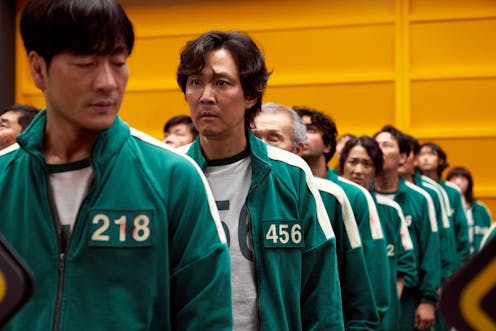why the bleak world of Netflix's Squid Game is a streaming phenomenon
- Written by Sung-ae Lee, Lecturer, Asian Studies, Macquarie University
 YOUNGKYU PARK/ Netflix
YOUNGKYU PARK/ NetflixSquid Game, an original Netflix drama produced in South Korea, is a streaming phenomenon. Released on 17 September, within two weeks the series has become the most watched Netflix title in 76 countries, including the US, Australia and South Korea.
Across nine episodes, desperate people enmeshed in debt voluntarily participate...
Read more: why the bleak world of Netflix's Squid Game is a streaming phenomenon
















